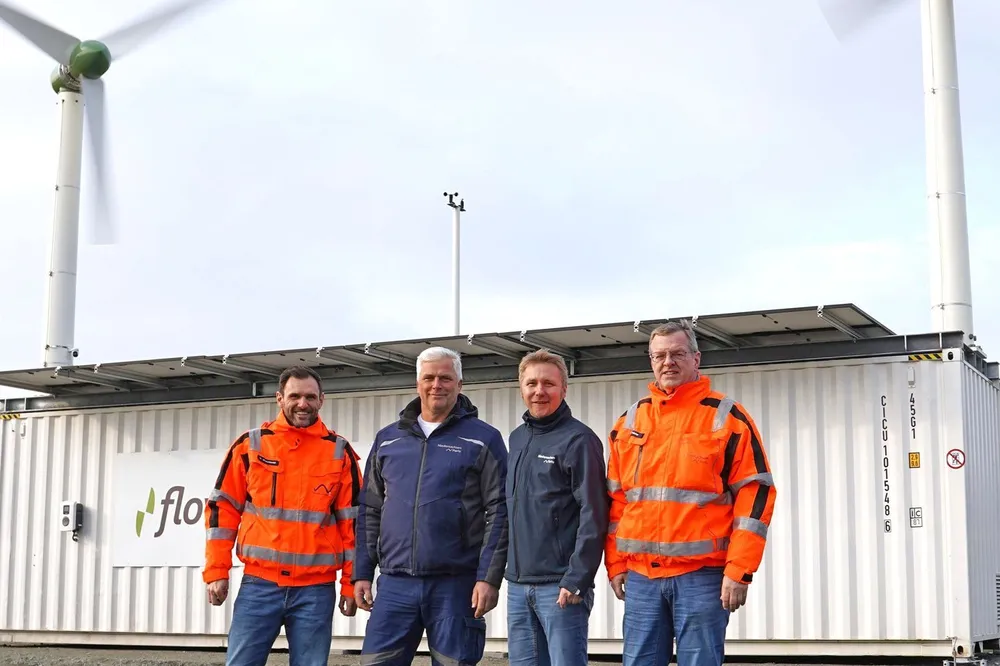'Swiss army knife' wind turbine gets North Sea run-out
Innovative 'mobile green centre' uses automated process to produce cheap and robust wind turbine blades, says Swiss developer

A “Swiss army knife” wind turbine that incorporates solar panels, battery storage and even electric vehicle charging capabilities into a shipping container system has been deployed at a North Sea port as part of an EU-funded project.
The innovative new four-in-one “Mobile Green Centre” developed by Swiss start-up FlowGen was installed at the German seaport in Emden earlier this month.
“When you consider everything the system offers, it is like the Swiss Army knife of wind turbines,” said Thomas Tröster, team leader for electrical engineering at Niedersachsen Ports (NPorts) in Emden.
"We want to exploit technical possibilities that are cost-effective, easy to implement and still profitable,” said his NPorts colleague Jens Kampen.
“We have more than enough wind in Emden, which is why the container wind turbines are ideal,” he said, adding that since installation the system has “exceeded expectations.”
The system features two wind turbines standing diagonally opposed to each other on a shipping container, with the solar panels folding out on the roof.
NPorts said the blades are made of light and robust composite materials. The automated press process FlowGen uses to make the blades enables high-volume production and scaling while maintaining quality, says the Swiss start-up.
Kampen said that what is “special” is that NPorts was able to install the system with low effort and costs.
The system is designed to generate over 45,000 kWh of electricity per year. NPorts said this is easily enough to operate the main gate to the port and the associated premises, as well as light the car park. Excess energy is pumped into the port’s grid.
The EU’s Interreg programme, which finances projects and initiatives that deal with climate, energy or social issues, covered 60% of the investment costs for the project, said NPorts.
FlowGEn has installed several of its mobile green centres in other locations, including at Munich airport last year.
(Copyright)